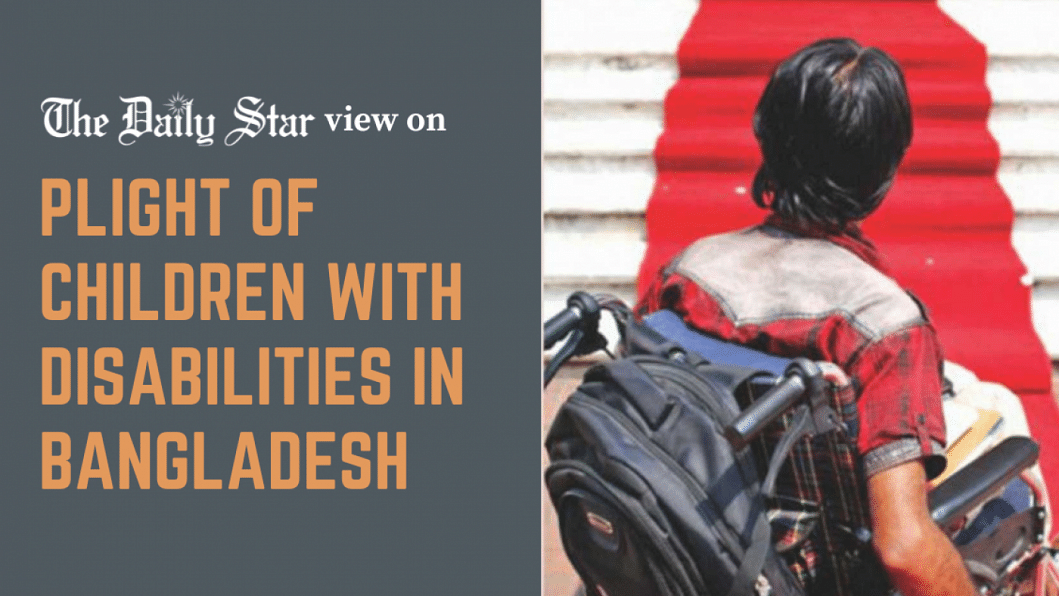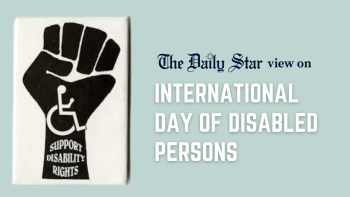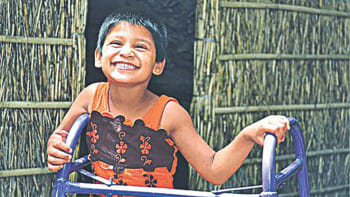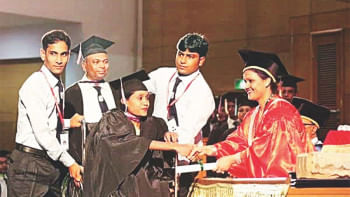Are schools suffering from ableist bias?

Children with disabilities are one of the most vulnerable groups in our country. Unfortunately, often not only are they not given preferential treatment to ease their struggle, but the system is somehow designed to deprive them of opportunities that others take for granted. A recent survey, for example, has found that more than half of such children are not getting any formal education – with 65 percent of them enrolled in primary schools, and only 35 percent enrolled in secondary schools. By contrast, 70.25 percent of eligible children are enrolled in secondary education, while the net enrolment ratio for primary education is 97.42 percent, as per the Bangladesh Bureau of Educational Information and Statistics.
Clearly, a vast number of disabled children are falling through the cracks as they try to move up the education ladder, ending their dream of building a meaningful life. Even when they do get an education, they lag behind their peers by over two years on average, according to the survey. This is despite a 2009 government directive for mainstream schools to enrol children with special needs, which, according to a recent report by this daily, many are still refusing to follow. Add to that the unfriendly infrastructure, the lack of a proper support system, and the constant discouragement and ableist slurs from the wider society. Together, they make life extremely difficult for the disabled and neuro-diverse community in the country.
Clearly, we have a long way to go in terms of ensuring a proper environment for them. As citizens, members of this community have the same rights as any other. The government is also obligated to show improvements in this regard, after having ratified a number of international agreements and treaties aimed at eliminating all forms of discrimination. But such commitments haven't translated into better interventions or results given the country's centralised government mechanisms, limited financial resources, and perhaps most importantly, a lack of understanding of the potential of this community.
With proper care and supportive infrastructure, people with disabilities can be valuable members of society, contributing to the development of the country and fulfilling their potential. For that, we need a critical rethink of the existing system. Mainstream educational institutions – schools, colleges, and universities – must be willing to enrol, support and enable students with needs. The recruitment sector must also see the value in engaging them once they have graduated. Unfortunately, only one-third of disabled individuals of the working age are currently employed. The employment rate for disabled women is even worse.
This must end. The ableist worldview of the state must change. It is the responsibility of the government to take a leading role in this regard by ensuring their inclusion through making services/opportunities easily available to them. The authorities must protect the rights of this vital section of society and help them grow and thrive.


 For all latest news, follow The Daily Star's Google News channel.
For all latest news, follow The Daily Star's Google News channel. 








Comments